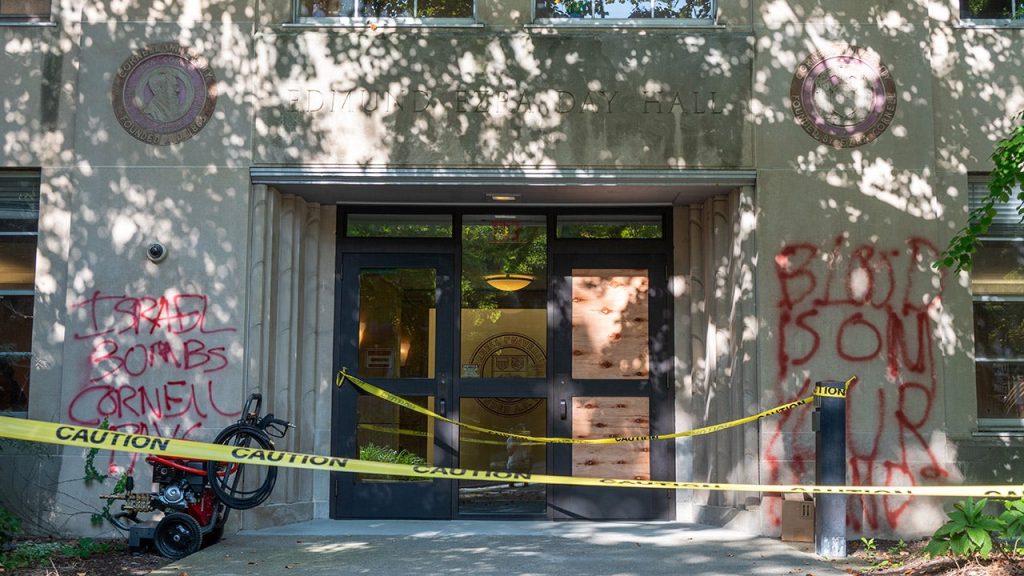Anti-Israel agitators vandalized property at Cornell University in Ithaca, New York, and held a protest on the first day of classes. Graffiti was sprayed along the entrance of Day Hall, with messages such as “Israel bombs, Cornell pays” and “Blood is on your hands.” The Vice President for University Relations condemned the vandalism, stating that acts of violence or property damage would not be tolerated and those responsible would face suspension and criminal charges. The activists responsible for the vandalism issued a statement claiming they targeted property to be heard by the administration which they accused of upholding Cornell as a “fascist, classist, imperial machine.”
The activists criticized former Cornell University President Martha Pollack for not calling for a cease-fire in Gaza and divestment from Israel. They vowed to continue taking action for divestment, a free Palestine, land back, and liberation struggles. The protesters marched through campus chanting antisemitic slogans and hung a banner in Klarman Hall. Police arrived shortly after the protesters entered the building to take disciplinary action. Some students doubted if the university would enforce effective consequences given the lack of arrests during a previous encampment on the Arts Quad. Students expressed concern that administrators were allowing fear to dictate their decisions rather than holding those responsible accountable.
In response to the ongoing demonstrations, the Interim President and Provost outlined specific planning and procedures in place for future protests. The university aims to provide campus locations for registered encampments to minimize disruptions. Peaceful protests that do not comply with university regulations will receive warnings and progressive measures for subsequent violations. Acts of violence, building occupation, or property destruction will not be tolerated and will prompt immediate public safety response. Administrators emphasized their commitment to neutrality regarding the protests’ subject matters while upholding free expression and civil discourse on campus.
The administrators assured that the university’s response to protests would be consistent, content-neutral, and guided by principles of free expression and protection against harassment and discrimination. They reiterated the importance of enforcing policies to ensure that speech or actions do not violate the rights of others. Despite the university’s support for free expression, there are limitations to ensure a safe and inclusive learning environment. The administrators acknowledged the potential for protests to occur on campus and emphasized the need for a balanced approach to address conflicting principles and maintain a respectful environment for all members of the community.













